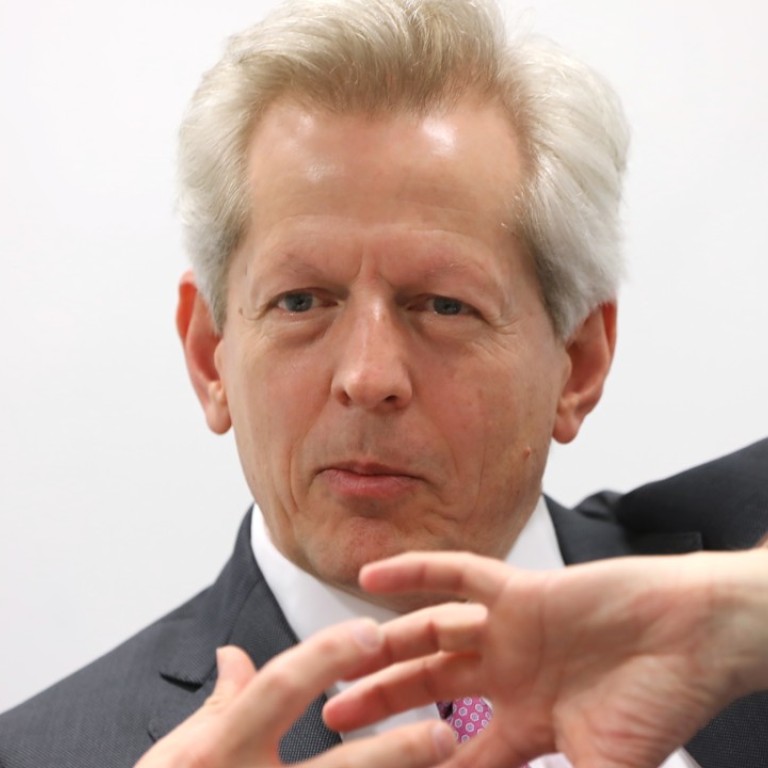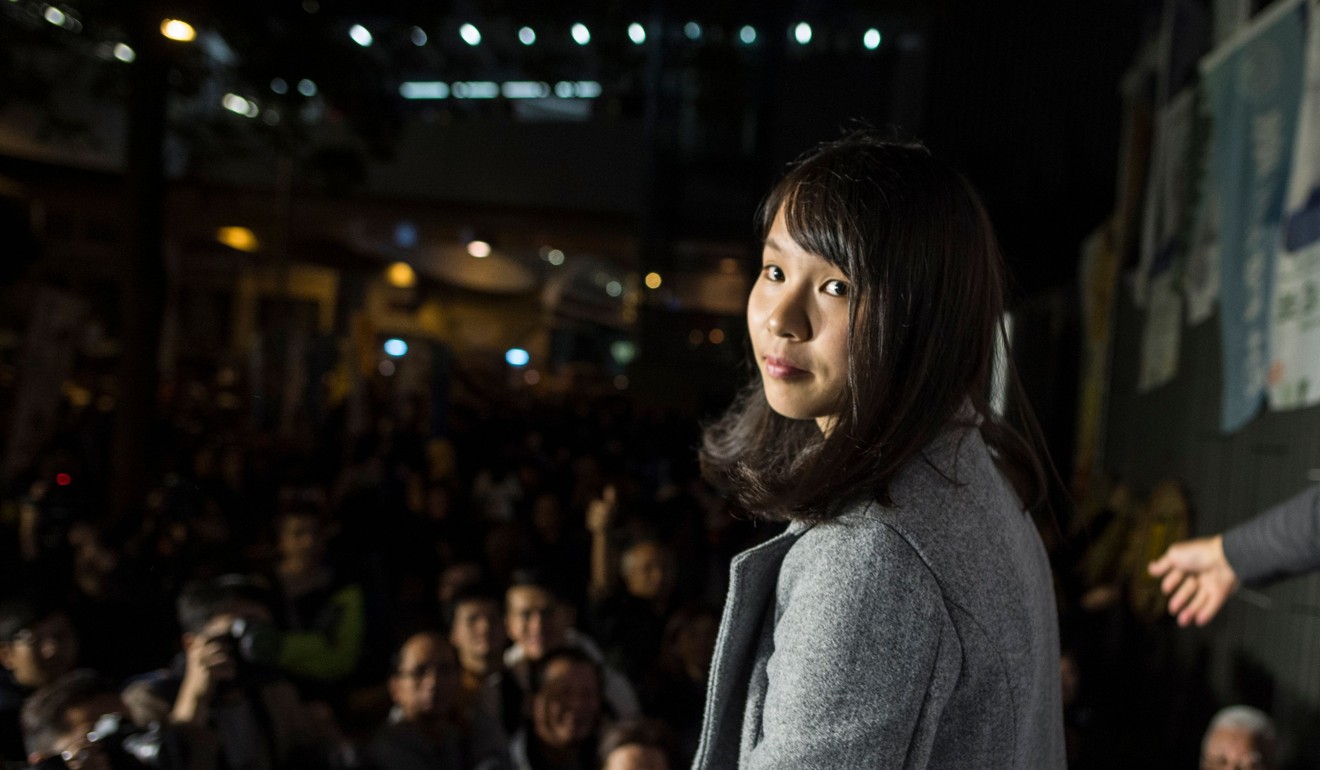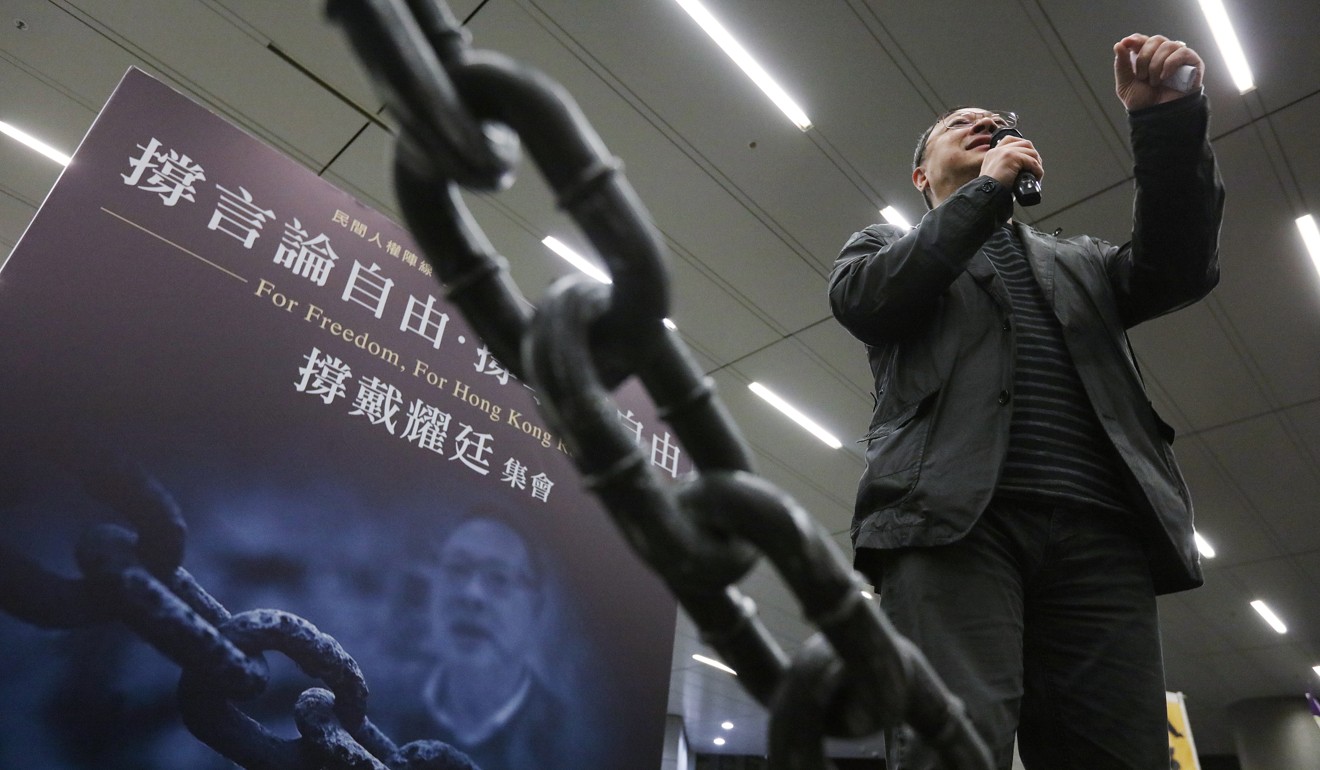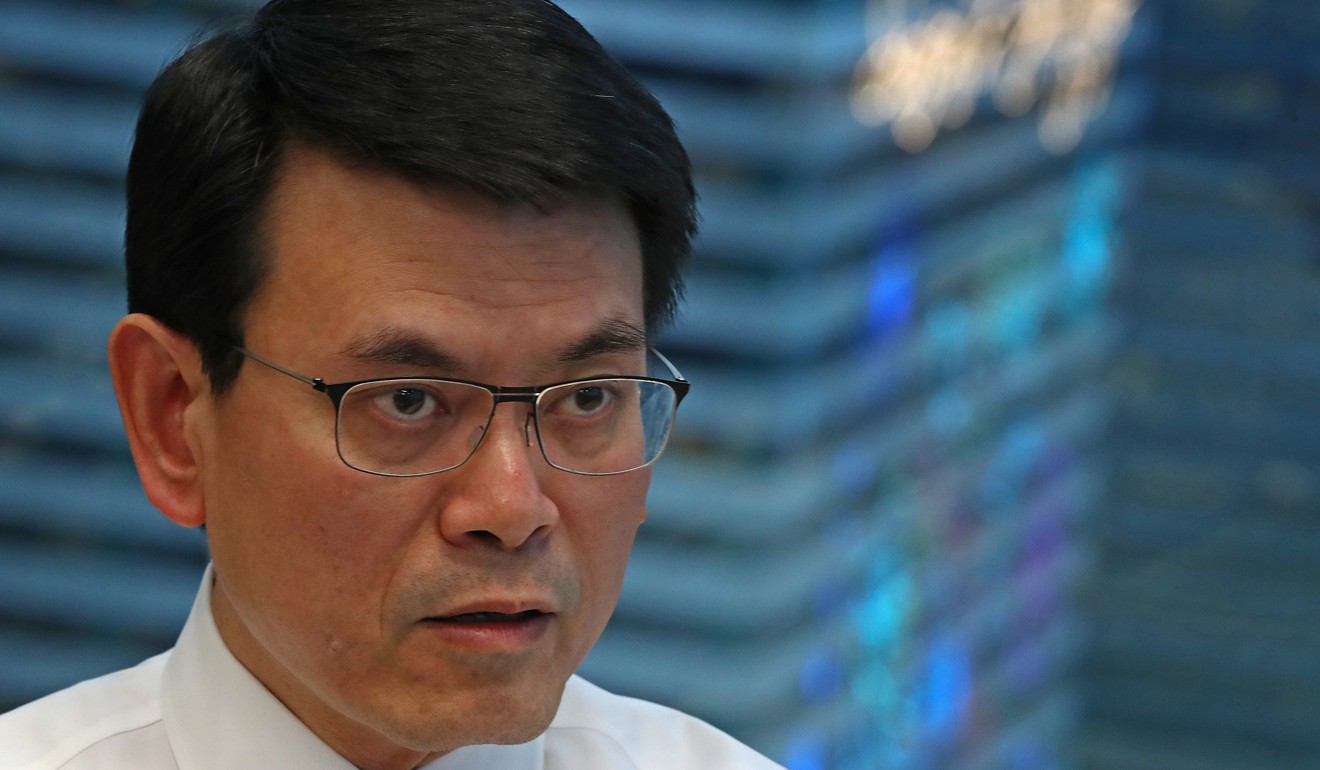
British delegation in Hong Kong to study legal reasons behind Agnes Chow’s by-election ban
Chairman of parliamentary committee on China says group wants to understand what Hong Kong law says ‘about the restrictions on anybody to stand for elected office’
Its sense of duty aside, can Britain play a relevant role in Hong Kong’s efforts to preserve its autonomy?
Graham, who was with six other members of the group, said the delegation hoped to learn more about the legal basis of the ban on Chow. The young activist was barred from running for a Legislative Council seat, election officials said, because her party, Demosisto, advocates self-determination for Hong Kong.

“That’s exactly one of the issues we want to understand: what does Hong Kong law say about the restrictions on anybody to stand for elected office. In the UK, there are no particular restrictions on what people have said in the past that would prevent them from standing for parliament,” the Conservative MP said. “I want to understand what the law says at the moment and therefore what the restrictions on candidates are in law.”
Agnes Chow’s by-election disqualification robs us all of a debate on Hong Kong’s future
Graham was cautious when the subject turned to Tai, saying he did not want to give a detailed assessment on comments he had not fully heard. However, he called on Hong Kong and mainland China to come to a sensitive understanding of what “one country” and “two systems” mean, referring to the “one country, two systems” principle which allows Hong Kong to have its own political, legal, economic and financial systems under Beijing’s rule.

“I think this is an incredibly sensitive issue because it touches on both aspects … on one hand, from the Chinese point of view, ‘one country’ means ‘one country’ and therefore [it] rules out any other option,” he said.
“On the other hand, ‘two systems’ means the freedom of speech and therefore balancing one against the other and understanding where the limits are for both is probably the most delicate balancing act that Hong Kong and China have to weigh together.”
He also reiterated the British government’s stance that independence was not a realistic option for the city.
Why Agnes Chow and self-determination should not scare the Hong Kong government
“I don’t think any members of parliament would disagree with that assessment,” he said.
The row over Tai, who Beijing and city officials say is advocating separatism, deepened on Monday after the Communist Party mouthpiece People’s Daily accused Tai in a column of being a long-time advocate of Hong Kong independence – an allegation which Tai has repeatedly denied.

Graham said the delegation, which also met lawmakers, as well as the commerce and economic development chief Edward Yau Tang-wah on Monday, hoped to encourage both the government and the legislature to make sure “freedoms are maintained, the rule of law is absolutely solid and the opportunities for Hong Kong people to have a voice through their representatives and being heard by the government continue”.
Chris Patten and other talking heads should examine UK visitor controls before criticising Hong Kong’s
Graham also defended his government’s six-monthly report on Hong Kong, a critique of the city’s rights and freedoms which has been repeatedly dismissed by the city government as foreign meddling.
“It is always good to have friends in any organisation who can give you constructive advice and analyses,” he said. “We want Hong Kong to succeed.”

